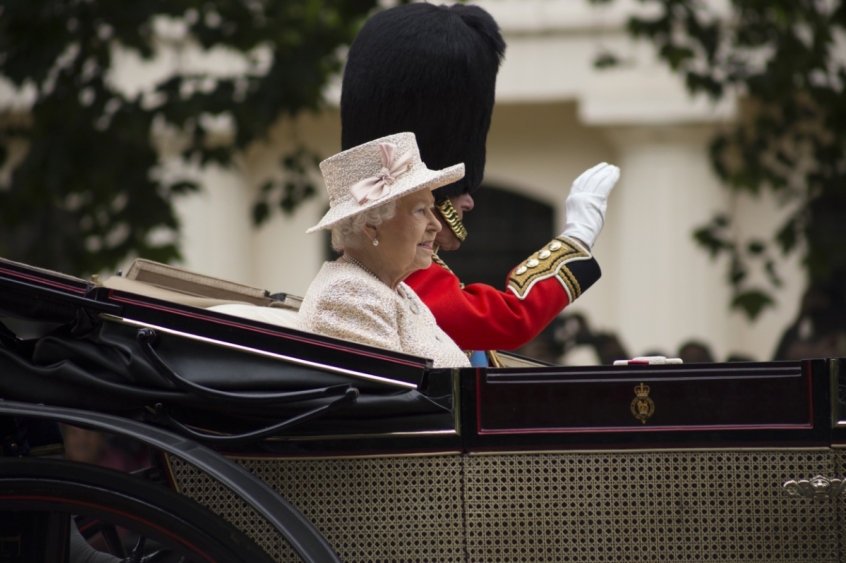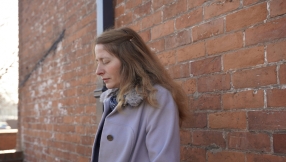
Jewish academic and expert in the Hebrew Bible, Irene Lancaster, reflects on what we can learn from the Old Testament about the qualities of a great woman - and indeed great monarch.
'When Adar comes in, joy increases'. Thus go the words of the Talmud. And this year, the Jewish community are enjoying two months of Adar, as we work up to the March festival of Purim. Purim always takes place exactly one month before Pesach, for both festivals commemorate the attempted genocide of the Jewish people, in the first case by Egypt and in the second by Persia.
And it could be said that if not for the courageous intervention of two Jewish women, genocide would surely have taken place, and the Jewish people would have been no more.
As it happens, my granddaughter in Israel is celebrating her Bat Mitzvah later this year, and as part of the celebrations we are studying 12 great Jewish women of history.
Jewish history is around 4,000 years old, so the choice is vast. But we have managed to select five great women from the Bible, plus seven more, who date from the last 2,000 years, including in our very own day.
And as well as the double joy that we're experiencing at present, this country has just celebrated the Platinum Jubilee of the accession of our longest-serving monarch, also a woman.
Queen Elizabeth II has now been on the throne for 70 years, acceding to the throne on February 6<sup>th, 1952. This is a record indeed. Not many people had heard of a Platinum Jubilee before now, although the term Jubilee stems from the Hebrew Bible, and ushers in a time of liberation.
I wasn't quite a year old when Elizabeth II acceded to the throne, aged 25. So my granddaughter was quite impressed when I told her that George VI was still on the throne at my own birth, while Clement Attlee was Prime Minister. We discussed the rationing in operation during the early 1950s, broken only by huge consternation when the first bananas made their appearance.
But, this week we are pausing to reflect, because our five great Biblical women have been studied and discussed from every angle, with the help of YouTube, Google Maps and the Hebrew Bible, of course.
Just as, according to Shakespeare, there are seven ages of 'man', I think that maybe we can see five stages in the evolution of queenly women, as depicted in the five great role models we've analysed. Although all of them are strong characters in their own right, nevertheless, their individual stories appear to make up a greater whole, as the mother of the nation evolves into the queen who saves her people in exile, in the face of all the odds.
So, this is what we have concluded at present (open to discussion of course).
We start with the first major Jewish woman, whose name is Sarah. For many, Sarah is the ideal wife and mother. She looks after her husband and family as best as she can, practising immense hospitality, which draws the surrounding peoples to take an interest in the concept of the One G-d. And, in addition, she advises her husband, Abraham, when things go wrong with one of the children. In the end though, it appears that Sarah sacrifices herself for others, and doesn't seem to have much of a life for herself. Very sadly, she has no relationship at all with her grandchildren. Sarah is born Sarai, a princess, but is later given the name Sarah, indicating openness.
Our second great Jewish woman is Miriam. Miriam is the epitome of the older sister, who keeps younger brothers, Aaron and Moses, in line, and even argues with her parents when necessary. Miriam saves the life of little baby Moses and watches over him from afar as he grows up in an alien palace. Some say that Miriam is also one of the midwives who saves the lives of other Jewish babies, going against Pharaoh's decree. Saving the Jewish babies alive is the first act of civil disobedience in history. Miriam's first thought therefore is for her siblings, and then for her community.
Our third Jewish woman is Deborah, first female Jewish judge in history, and the best of the Biblical lot. As modesty dictates, she sits under her peaceful 'palm tree of Deborah' on Mount Tabor, Galil, and people come to her for advice. In Deborah we see the ability to delegate. She chooses the male general, Barak, assisted by his female accomplice, Yael, to deal with the enemy Sisera. Deborah is not afraid of taking difficult decisions as a last resort in order to safeguard the Jewish people. Deborah is the prototype of the many female Jewish judges who have represented their people. One such was Ruth Bader Ginsburg of the USA, and there are quite a few in the modern State of Israel, including the present President of the Israeli Supreme Court.
Our fourth Jewish woman, Ruth, is born through incest to be a princess of Moab. She accompanies her Jewish husband and family out of Israel when things get tough. This event takes place in the time of 'the judges' when everyone does what is right in their own eyes. Ruth's husband dies and his mother, Ruth's mother-in-law, Naomi, urges Ruth to return to her familiar life with her royal family. For Naomi is now destitute and can offer Ruth nothing. But Ruth refuses to leave Naomi. Instead she says the words which have gone down in history: (Ruth 1:16-17): 'Please don't urge me to leave you, to turn back from following after you. For wherever you go, I will go. Wherever you lodge, I will lodge. Your people will be my people and your G-d will be my G-d. Wherever you die, I shall die, and there will I be buried.'
Thus Ruth becomes the paradigm convert to Judaism – the epitome of loyalty, constancy and willingness to die for her mother-in-law's way of life, which will now become Ruth's own. Ruth doesn't talk about faith or beliefs, righteousness or self-justification. She talks about belonging to community. And – if truth be told – this is what Judaism is all about – it's about community. At Shavuot we read the Book of Ruth, together with the story of the Giving of the Torah at Sinai, when everyone together experienced the words from G-d. Ruth the Moabite Princess convert ends up becoming the great grandmother of King David and therefore the ancestor of the Messiah.
And finally, we come to Esther and Purim. Like Miriam, Esther has to contend with the threat of genocide in Diaspora – this time in Persia. The Jews are accused by the Persian government of being a danger to the King's realm. The Jews have different customs from the other peoples in the huge Persian Empire. In addition the Jews are dispersed throughout the entire Empire, extending from India in the east to Ethiopia in the west. In other words, according to their detractors, the Jews are both different and uncontrollable. Does this ring any bells for our own contemporary experience as Jews?
But Esther is in many ways the opposite of Ruth. She starts out being as insignificant as she can possibly be, coming from the youngest tribe, Benjamin. She is told by her uncle, Mordechai, that there is danger for the Jews, and she, Esther, will have to do something about this. Esther must take the drastic step of marrying the King of Persia, including in the first instance, participating in a demeaning beauty contest. Esther wins the contest and becomes Queen, but then has to contend with Haman, the Prime Minister, who is out to destroy the Jews. Esther will therefore have to admit to the King of Persia that she is Jewish. The trouble is that if Esther accesses the King without his prior permission, she is liable to be executed.
Mordechai then says the following words to his niece (Esther 4:13-14) 'Do not delude yourself that you will escape the King's palace more than any other Jew. For if you remain silent at this time, relief and deliverance will surely arise for the Jews from another place, but, on the other hand, you and your father's house will perish. And, in any case, who can deny the possibility that it was for precisely this moment that you attained the queenly estate.'
Esther heeds the words of Mordechai. Psalm 22 is known as Esther's prayer to G-d: The Psalm's epithet is 'the Morning Star' (in Hebrew Ayalet-haShakhar), another name for the beautiful Esther, who cries out 'G-d, my G-d, why have You forsaken me? Why do you keep aloof from saving me. Why do you ignore my cry of anguish'. In this way, Esther arouses her people to great things. And according to the Talmud, when the Messiah comes, the one festival that will remain is Purim, when G-d, who isn't mentioned at all in the Book, is there in the background, helping Esther to save the Jewish people in Persia.
What can the stories of these five Biblical Jewish women teach us about the life of Queen Elizabeth II, who has just reached her 70<sup>th Jubilee Year?
When we ponder the 70-year reign of Queen Elizabeth, we find that she has been a devoted wife, mother, sister and counsellor, receptive to others and occasionally having to make very difficult decisions for the greater good. The Queen has had to be someone who sees the bigger picture at all times, in order to safeguard her own people.
And this is why, during Sunday's commemorative service for Queen Elizabeth, held at Westminster Abbey, the talk was of relationship, humanity and wisdom beyond rubies, as depicted so beautifully in the Book of Proverbs, attributed to Ruth's great great grandson, Solomon.
Thus, the queenly estate, as depicted in the Hebrew Bible, evolves. It is not about high birth, but about character. It is not about power, but about service. Most of all, the queenly estate is about love for one's people, and the various ways in which this type of very precious love can be depicted and lived to the full.













